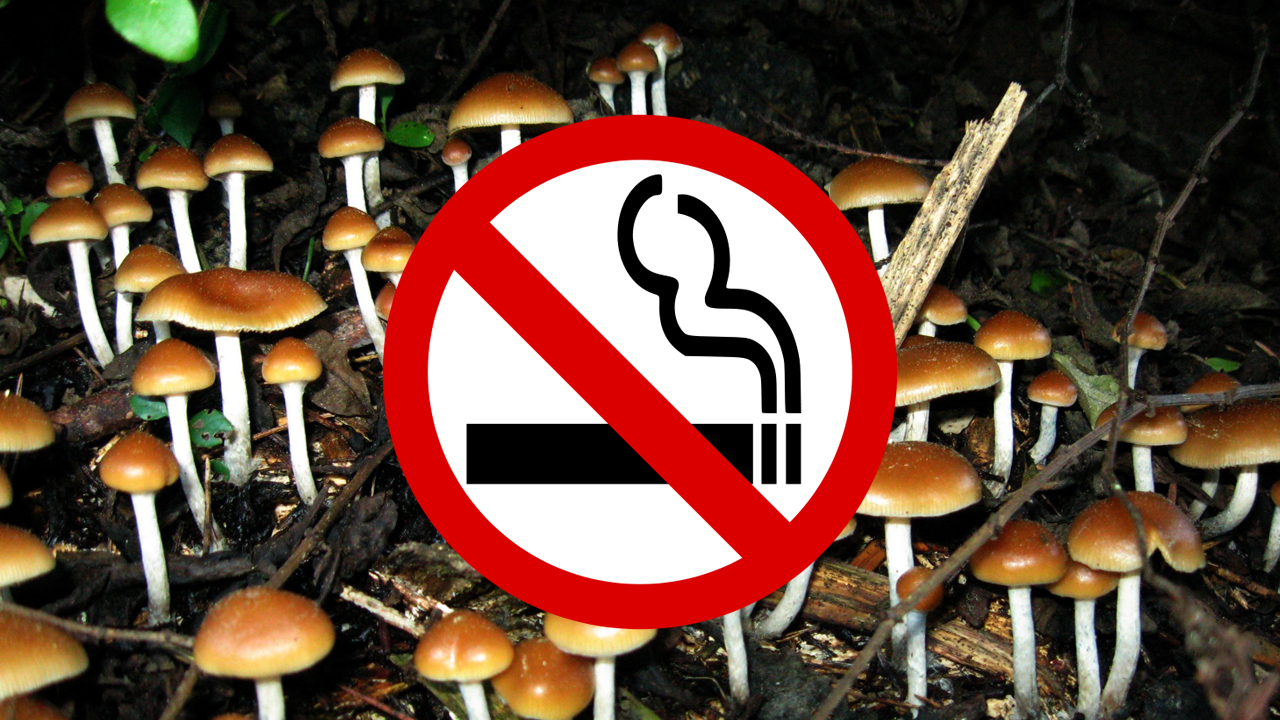The scientific community continues to embrace tentatively hug psychedelic therapy, and with good cause. In a new Johns Hopkins University study published in the Journal of Psychopharmacology, “just two or three experiences” tripping on mushrooms helped a dozen volunteers struggling with a long-term smoking addiction quit.
The success rate is twice that of “the gold standard medication”/Big Pharma cessation aids like Pfizer Inc.’s Chantix. At six months, these have a 35% success rate, with nicotine patches and gums being even less effective, but magic mushrooms — in combination with cognitive therapy — helped 12 of 15 participants stay off the cigs.
The volunteers — including a layer, a museum worker, a teacher — were “all more interested in quitting smoking than in taking a psychedelic drug.” They ingested a pill containing psilocybin in “a carefully controlled environment” and combined their treatments with “behavior modification therapy, including counseling and keeping a journal.”
The study demonstrates an attuned, knowledgeable and gentle approach, unlike some other recent studies where you get shot up with psilocybin and lie in an MRI for awhile. Global Mail:
The therapy occurred over two or three sessions. Volunteers came to a laboratory set up like a living room, took a 20 milligram pill of psilocybin, covered their eyes and relaxed with music for several hours as the psychedelic effect took hold. Those who had a transcendent experience, where people say they went into a mystical state that helped them feel unity with themselves and the universe, tended to have more success, the researchers said.
All the volunteers returned two weeks later for another round with a higher dose of the drug. They were all offered a third experience, though several declined, Johnson said. The treatment doesn’t involve swapping one drug for another, said Johnson, who pointed out that hallucinogens aren’t addictive.
It not yet clear exactly how the hallucinogenic substance has been so successful, but the researchers strongly recommend further studies which will include control groups, brain scans and explorations of treating other types of addiction. Psilocybin could also be used to help treat post-traumatic stress disorder. It’s the best. (Images: WikiCommons)



